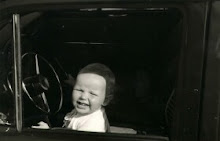This past Sunday I watched a unique pairing of films on PBS. First up was Touching the Void, a docu-drama about the events of an almost tragic 1985 climb up Siula Grande in the Peruvian Andes by Brit Alpine-climbing friends Joe Simpson and Simon Yates. The long and short of it is that on descent Joe broke his leg (drove the femur up into his kneecap...OUCH). During their attempt to descend that entails Joe basically sliding backwards on his belly while tied to Simon via a rope, Joe slides and ends up hanging off a ledge. Due to darkness and that they couldn't hear each other for the wind, this is unbeknownst to Simon. Simon, about to slide and (he's pretty sure) fall into something bad, decides to cut the rope. This rope-cutting came as a bit of a shock to Joe. They couldn't communicate due to conditions, so neither knew of the other's peril. Simon continues to descend, wracked with grief at having to cut the line and (he thinks) kill Joe.
However, it is Joe's story that is impressive and is the centerpiece of the film. Now, dude has a broken leg, broken in a way that must have been 100x more excurtiatingly painful than a typical break. Yet he manages to climb out of a steep crevasse and work his way down the mountain, hobbling, rolling, gimping and crawling, all the while severely malnourished and dehydrated. He ends up about 200 feet from the base camp, and his yells are heard by Simon. At that point he'd lost about a third of his body weight. But he is alive.
Next up was Secrets of the Dead: Tragedy at the Pole, a recounting of the ill-fated 1911-12 British expedition to the South Pole. The story of the Scott team's tragic demise is well-known. This docu-drama sheds new light on the event. Scott and his team had died 11 miles from their camp, supposedly being pinned down by a freak blizzrd that had lasted for days. What this films shows is that the blizzard may in fact have subsided, contrary to the notes Scott left and the notes of his crew. Scott had fallen victim to frostbite, fatigue and exposure, and could not carry on. Laready a member of the crew had died under similar circumstances, going as far as to leave his tent and sacrifice himself so that he wouldn't weigh down the rest. Scott's remaining crew chose not to leave their captain but to freeze to death with them. A reexamination of the weather charts and notes from a rescue team sent from camp indicated that the blizzard had stopped. Scott's crew put loyalty above life.
These two films, shown in counterpoint like this, raise a whole series of questions regarding leadership, comradeship, sacrifice and loyalty. Would members of a modern-day polar expidition lay down their lives for their captain? Would a Victorian-era Yates have cut the rope? Have these codes changed so much from the turn of the century? What would each of us do in similar situations?
Monday, November 22, 2004
Subscribe to:
Post Comments (Atom)




No comments:
Post a Comment